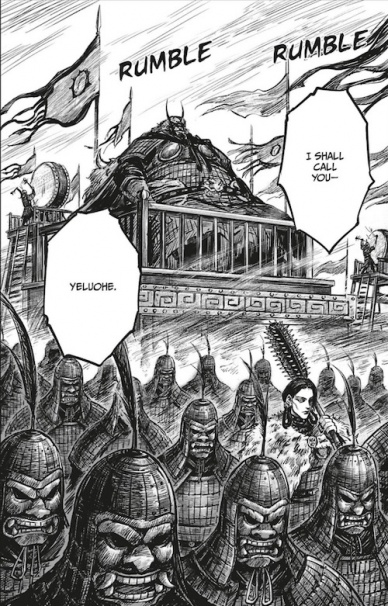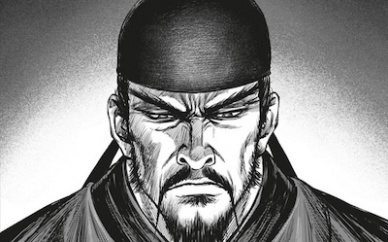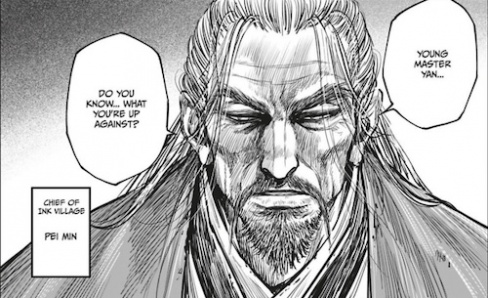Welcome back to the Isu Codices. This month, we are looking into the English translation of the second volume of the Chinese manhua “Assassin’s Creed Dynasty.”
A note on spelling: due to the different methods of romanization for Arabic names, several different spellings of the same name may be found in history, but we will attempt to keep to one for each character for sake of avoiding too much confusion.
If you want to get a refresher on the first installment of this manhua, see here.
History Lessons
Battle of Talas (May – September 751)

The Battle of Talas was a military engagement between the Chinese Tang dynasty and the combined forces of the Arab Abbasid Caliphate and the caliphate’s ally, the Tibetan Empire.
The exact location of the battle has not been confirmed but is believed to be near Taraz and Talas on the border of present-day Kazakhstan and Kyrgyzstan, presumably near the western drain of the Chui River.
In July 751 AD, forces from the Tang (led by Gao Xianzhi, Li Siye, and Duan Xiushi) and from the Abbasid (led by Abu Muslim and Zayid ibn Salish) met in the valley of the Talas River to vie for control over the Syr Darya region of central Asia. According to Chinese sources, after several days of stalemate, mercenaries from the Karluk Turks, originally allied to the Tang, defected to the Abbasid Arabs and tipped the balance of power, resulting in a Tang rout.
The defeat marked the end of the Tang westward expansion and resulted in Muslim Arab control of Transoxiana for the next 400 years. Control of the region was economically beneficial for the Abbasids because it was on the Silk Road. As such, Chinese prisoners captured in the aftermath of the battle are said to have brought paper-making technology to the Arab World and the Middle East, eventually resulting in its expansion to Europe rather than relying entirely upon trade routes and papyrus.
Abu al-‘Abbās ‘Abdu’llāh ibn Muhammad al-Saffāḥ (721 – 754)

Hereafter known as al-Saffah, this man was the first caliph of the Abbasid Caliphate, one of the longest and most important caliphates (Islamic dynasties) in Islamic history.
Yeluohe

The Yeluohe (translated as “the brave”) was an elite corps under An Lushan composed of some 8,000 soldiers and a dozen able generals from amongst the peoples of the Khitan, Xi, and Tongluo tribesmen, organized in preparation for An Lushan’s imminent rebellion against the Tang dynasty. Some sources claim the combined troops numbered as large as two hundred thousand by the time he revolted in Fanyang.
Lieutenant generals included Shi Siming, An Shouzhong, Li Guiren, Cai Xide, He Qiannian, Niu Tingjie, Xiang Runrong, Li Tingwang, Cui Qianyou, Yin Ziqi, Wu Lingxun, Neng Yuanhao, Tian Chengsi, Tian Qianzhen, and Ashina Chengqing.
On the other hand, strategists included Gao Shang, Yan Zhuang, Zhang Tongru, and Sun Xiaozhe.
In Assassin’s Creed, it is also a splinter cell of the Order of the Ancients that split off from the primary Golden Turtles in Tang China.
Shi Siming (703 – 761)

Shi Siming was a general of the Tang dynasty and a childhood friend of An Lushan who followed the latter on his rebellion against Tang, and who later succeeded An Lushan’s son An Qingxu as the emperor of the Yan dynasty that Lushan had established, after executing him for having betrayed his own father.
Ultimately, he was himself betrayed by his own son, Shi Chaoyi, whose subordinate Luo Yue strangled the emperor of Yan in an attempt to prevent others from rescuing him as well as to defend Chaoyi, who subsequently became the final Emperor of Yan (more on him if he comes up directly).
Gao Miao

Alongside He Qiannian and Li Qincou, Gao Miao was ordered to guard Tumen Pass, a gateway into Hebei near to Changshan. Due to a ruse by Yan Gaoqing through which a false order called Li Qincou to Changshan, not only was Li Qincou executed, but Gao Miao and He Qiannian were captured alive on their return and transported, along with the head of Li Qincou, to the capital by Gaoqing’s son Quanming.
Continued belowHe Qiannian
Alongside Gao Miao and Li Qincou, He Qiannian was ordered to guard Tumen Pass, a gateway into Hebei near to Changshan. Due to a ruse by Yan Gaoqing through which a false order called Li Qincou to Changshan, not only was Li Qincou executed, but Gao Miao and He Qiannian were captured alive on their return and transported, along with the head of Li Qincou, to the capital by Gaoqing’s son Quanming.
Li Qincou (? – 756)
Alongside Gao Miao and He Qiannian, Li Qincou was ordered to guard Tumen Pass, a gateway into Hebei near to Changshan. Due to a ruse by Yan Gaoqing through which a false order called Li Qincou to Changshan, Li was killed outside of the city walls, the rest of his party seized and executed the next day and causing the rebel troops at the pass to scatter. Not only was Li Qincou executed, but Gao Miao and He Qiannian were captured alive on their return and transported, along with the head of Li Qincou, to the capital by Gaoqing’s son Quanming.
Sun Xiaozhe
Sun Xiaozhe was one of the four strategists of An Lushan by 751, alongside Rao Shang, Yan Zhuang, and Zhang Tongru. In 756, An Lushan ordered Sun Xiaozhe to have eighty three princesses, their husbands, and parties of Yang Guozhong and Gao Lishi murdered at Zongren Fang in reprisal for his already executed son An Qingzong.
Yan Zhuang
Yan Zhuang was one of An Lushan’s strategists. After the latter ascended to the Yan dynasty throne, most important matters were handled through Yan Zhuang. However, as An was beset with encroaching blindness and illnesses, he became ill-tempered and paranoid, flogging or even murdering his servants if they caused him any displeasure, with even Yan being punished at times.
Yan Gaoqing (692 – 756)

Yan Gaoqing was the cousin of Yan Zhenqing and the father of Yan Jiming who served as the governor of Changshan since having his appointment secured by An Lushan himself. He was also the man who opened Tumen Pass by way of the defeat of three of An Lushan’s generals in 756. For the execution of Li Qincou and the capture of Gao Miao and He Qiannian, Yan Gaoqing was awarded by the emperor with the positions of chief minister of the Court of Imperial Regalia and vice censor-in-chief (both of which he would never fill).
After a six-day siege on two fronts from the generals Shi Siming and Cai Xide, Gaoqing was forced to surrender to An Lushan. His son Jiming and grandson Lu Di were beheaded, but Yan GAoqing and his second Yuan Lüqian were taken alive to Luoyang and brought before An Lushan. Due to his continued defiance, Gaoqing was bound to a pillar of a bridge, displayed before the brother of He Qiannian and a crowd of spectators. His tongue was cut out as he continued to rail at his captors. Soon after, he was executed via dismemberment.
Yang Guanghui

Yang Guanghui was a Chinese official who served as mayor of Taiyuan. He was captured in a surprise raid on Taiyuan by An Zhongzhi (formerly known as Li Baochen), on behalf of An Lushan.
Yan Zhenqing (709 – 785)

Yan Zhenqing was a Chinese calligrapher, military general, and politician, as the latter two being a loyal governor of the Tang Dynasty. He was a leading Chinese calligrapher whose artistic accomplishment in that field is equal to that of the greatest master calligraphers of history, and his regular script style, Yan, is often imitated. He was the cousin of Yan Gaoqing, and through him the first cousin once removed of Yan Jiming (who Yan Zhenqing called his nephew).
Pei Min

A Tang Dynasty general during the Kaiyuan era (713 – 741), Pei Min participated in battles against the Xiongnu, the Tibetan Empire, and the Khitans. Such was his skill with swordplay that he was known as the “Sword Saint,” and his way with the sword was detailed as one of the “Three Wonders of the Tang Dynasty” by Emperor Wenzong of Tang (809 – 840) in an imperial decree, included alongside Li Bai’s poetry (mentioned previously) and Xhang Xu’s calligraphy. Outside of his swordsmanship, Pei Min was also said to be a great archer, and to have killed thirty-one tigers in a single day.
Continued belowThe poem “Gift to General Pei” was written by Yan Zhenqing for Pei Min.
New Issues
Assassin’s Creed Dynasty: Beacon Fire (Chapters 8 – 16)
Talas, China
751 CE
In the Battle of Talas, Li E was on the side of the Chinese, opposing the caliphate’s charging cavalry. He was one of the survivors of the Tang side, and was rescued by a group of white-hooded Hidden Ones.
Despite some early conflict due to the Persian-Mandarin language barrier, Li E managed to reach an accord with the newcomers, who were from various other cities. One, Alianna (alternatively translated as Éléna), seems to be at the head, but does not say where she came from.
755 CE
Li E is climbing in the Tiaheng mountain range, coming to a peak. He has been living at an ink village with the little boy Jing Jing and the even younger girl Kong Kong, both of whom are apprentices under Pei Min. Evidently, Li E has been coming and going from the mountain, but prefers not to return to Chang’an for some reason, likely related to his infiltration in volume 1. A mass of troops on horseback are visible a fair way below, likely related to An Lushan’s incipient rebellion.
On November 9, An Lushan tells his amassed troops at the base camp in Fanyang County (roughly equivalent to modern day Beijing and Baoding in the Hebei province) of Yang Guozhong’s various corrupt acts (some of which are clearly falsified like his purported incest). As shown, Yang Guozhong is guilty of at least some, such as his torture of people for information, but how much is not examined. An Lushan does lie about the legitimacy of this rebellion, claiming to have orders from the Emperor himself to come and slay Guozhong, but it is enough, leading the assembled troops to burst into a war cry of “Slay Guozhong, purge the lords.” As the soldiers are riled up. An Lushan meets with the leaders of his army, the Yeluohe. Aside from himself, this group consisted of the following leaders: General Shi Siming; Lieutenants Sun Xiaozhe, Gao Miao, He Qiannian, and Li Qincou; and the clerk Yan Zhuang. An leaves the Fanyang base camp in the care of Shi Siming, and learns that, beyond them, his eight thousand soldiers have sworn allegiance to him, which he elects to begin leading on a March toward Chang’an.
Back in the capital, Yang Guozhong tries to convince the emperor of An Lushan’s betrayal, but his unsanctioned search through the general’s mansion leaves him on the receiving end of a reprimand, only stopped short of punishment by the official’s familial relationship with his favorite concubine. It is only when Gao Lishi confirms the reports of rebellion that the emperor takes them seriously, and even then he is reluctant to fight, wanting to attempt peace and speak with An Lushan personally, as the latter allegedly has little sway in court, and the Tang emperor wishes for all officials to be seen as equals and not fighting amongst themselves. Still, as Lishi is aware, such an attempt is useless, and so the eunuch asks the emperor what is to be done if events have passed the point of no return.
In Changshan County, near to the eponymous city, Li E, Yan Jiming, and Yan Gaoqing bear witness to An Lushan and Li Qincou arriving at the gates, having the vice regent of Hedong, Yang Guanghui, tied to a flagpole. Claiming his corruption (and aware of his alliance with the Golden Turtles), An Lushan has the captive executed by a hail of arrows. Immediately after the execution, An gives an ultimatum to the Changshan commandery: join his forces, or be killed. In the face of this decision, Gaoqing decides to join, and so the lieutenants Gao Miao and Li Qincou are left behind in the city to “assist” (read: keep an eye on) the Yan county.
From their quasi-captivity, Jiming tells Gaoqing that he hates Yang Guozhong anyway, feeling that bad people prosper while the good, such as the Yan family, have to suffer, such as his uncle Yan Zhenqing suffering a reduction of status for offending Guozhong. However, Gaoqing is fully aware that the “secret decree” An Lushan claims is nothing but a lie, as if the Emperor did truly want to be rid of corruption, he would not need border patrols in order to enter the court. Refusing to take the offer of high status given by An Lushan, Gaoqing decides on his own kind of rebellion from within his walls. Rather than to simply escape, Jiming agrees to leave the city to tell other Hebei counties of Changshan wishing to fight. Unfortunately, none of them want to, leaving him to go to one last option: Qinghe, where Li E is located.
Continued belowThere, with Uncle Chen (his driver from long ago), he is attacked by assassins (not the same as Assassins) who aim to take his head for a prize from General An. Luckily, the two are saved by the timely arrival of Li E himself, who brings them to the ink village he lives within, hidden away in Qinghe.
The master of the village, Pei Min, has a cough (and appears quite elderly, but still somewhat fit), and hopes that the war will not come to them beyond the Yellow River, though the war itself is all but inevitable. He tells the story of when he, a former general, fought kidnapping murderers of an entire village who came from the west (and whose outfits somewhat resemble the Order of the Ancients of 400s Greece). According to Pei, they had been led by An Lushan, who had been a relatively minor military officer at the time. Pei worries that if that “extremely cruel monster” comes to his village, everyone will die, as the village is made up of orphans, disabled soldiers, and ink producers. In their stead, Li E decides to follow Yan Jiming back to Changshan to liberate it.
Back in the Imperial palace, the emperor receives unequivocal news of An Lushan leading two hundred thousand men into a rebellion that may overtake the eastern capital of Luoyang. There, Lushan has declared himself the god of war, who would bring light to the world, as his plan to sink all ships in the river and allow it to freeze over allowed him to cross due to a “mysterious spell” he “cast” as that deific role.
Arriving in Julu County, Li E and Yan Jiming see it burned to the ground. According to a survivor, it was put into this state by soldiers who believed its name to be a bad omen and indicative of “Defying Lu(shan).” In retaliation, Li E decides to kill the soldiers continuing to steal what little the civilians have left. With some help from Yan Jiming, who kills for the first time, he succeeds, and together they light the beacon fire to let others know people still fight, with many others soon following from various watchtowers.
We will check back next month, by which time the third volume of “Dynasty” is set to release in an English translation, alongside another installment of English comics!






